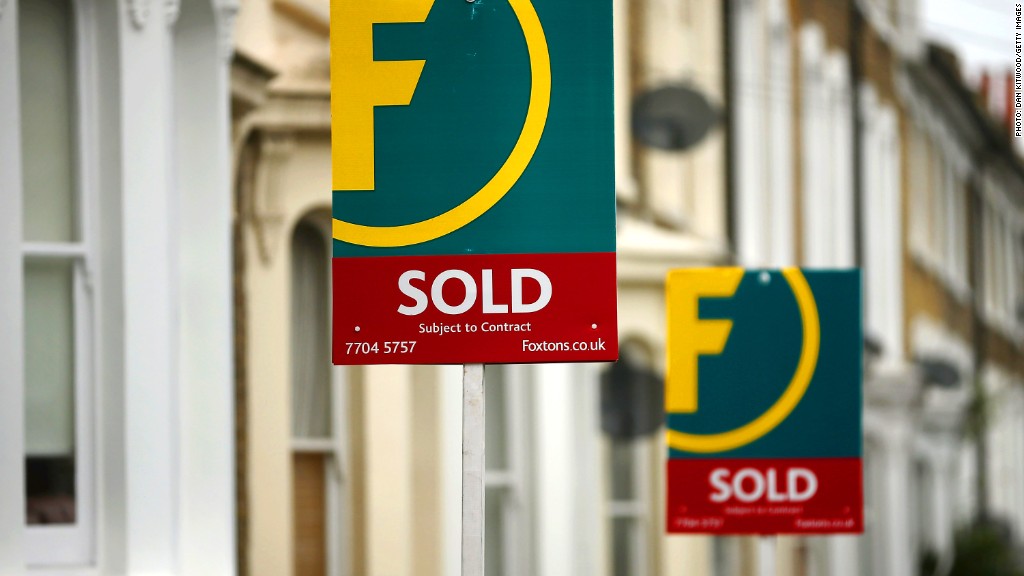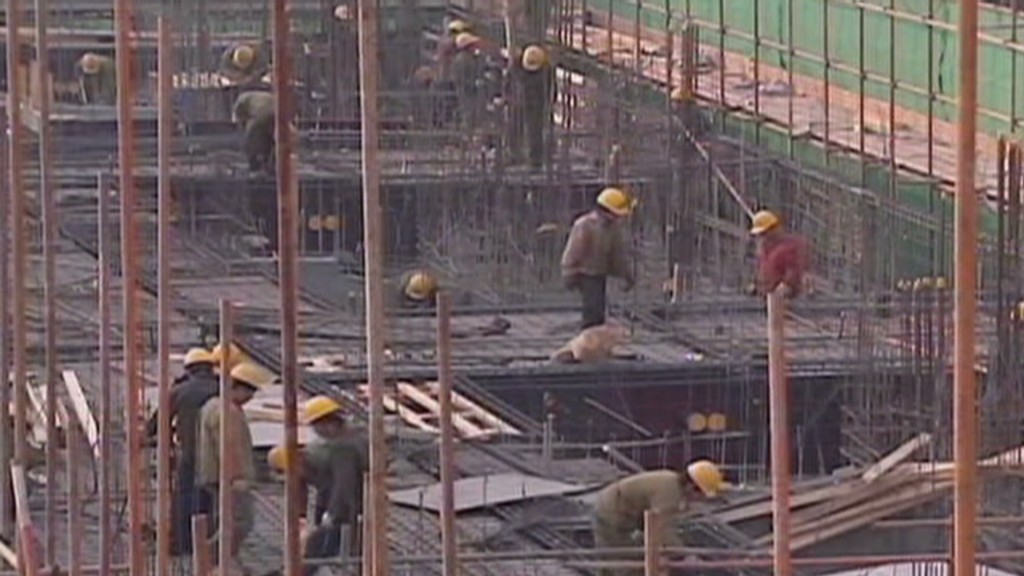
The British love affair with property is back.
Rising home prices and growing demand are being spurred by a recovering economy, aggressive government subsidies, rock-bottom interest rates and rising consumer confidence.
But some property specialists and politicians are voicing concern that the current boom is unsustainable, and could end in bust.
First-time buyers are flooding the market in fear of even higher prices to come, and lending to landlords has risen to a level not seen since 2008.
The government's 'Help to Buy' program, which allows buyers to purchase new homes with just a 5% deposit instead of the typical 20%, is raising alarm bells.
The program provides buyers with a government guaranteed interest-free loan of up to 20% of the value of newly-built homes, and has led to 10,000 sales since its launch in April.
The program is now set to expand further in January to encompass existing properties and more buyers, adding to demand while doing little to tackle the country's chronic housing shortage.
Related: The best places to live in America
The Bank of England recently pledged to keep benchmark interest rates at record low levels for years to come, which helps homeowners by keeping mortgage rates low.
But some experts are worried that once rates start rising and government subsidies expire, homeowners could start defaulting, leaving taxpayers liable for tens of billions of pounds of lending.
"If we want to bring down government debt, the last thing we need is to subsidize mortgage lending. You're storing up trouble for the future," said Andrew Brigden, chief economist at Fathom Financial Consulting. "This seems like a very dangerous maneuver."
The collapse of overheated real estate markets in the U.S., U.K and elsewhere lay at the heart of the global financial crisis, wreaking havoc on banks. The U.K. was forced to bail out its hardest-hit players, including Northern Rock, the Royal Bank of Scotland (RBS) and Lloyds Banking Group (LLDTF) in 2008.
Vince Cable, a senior minister in the coalition government, is concerned that the 'Help to Buy' program could inflate house prices to unsustainable levels.
"We mustn't risk returning to the problems of the last decade when housing got out of control," he said in a BBC interview.
Related: The best places for the rich and single
London -- a cosmopolitan city with more than 8 million residents and a large financial center -- is currently seeing the strongest demand and highest prices in the country.
Just this month, a single outdoor parking spot in central London was listed for sale for £300,000 ($464,000).
Wealthy investors from overseas are pushing up London property prices as they snap up prime locations, while local resident are also competing for real estate. The action isn't just confined to London.
A new report from the Royal Institution of Chartered Surveyors shows home prices across the country rose in July for the fourth consecutive month, growing at the fastest pace since the market peak in late 2006.

Other market players are more relaxed about the risks of a bubble, especially in places outside London.
"We're starting from a really low base," said Susan Emmett, director of residential research at the real estate agency, Savills. "We have to see a lot more buying and selling before we can start talking about a bubble."
Even within London, prices are high relative to the rest of the country, but they're not unrealistic, said Liam Bailey, head of residential research at the real estate agency, Knight Frank.
The average home price in the U.K. is £167,069 ($258,040), according to Lloyds Banking Group. The average price in the greater London region is £284,749, up by nearly 7% over the past year.


